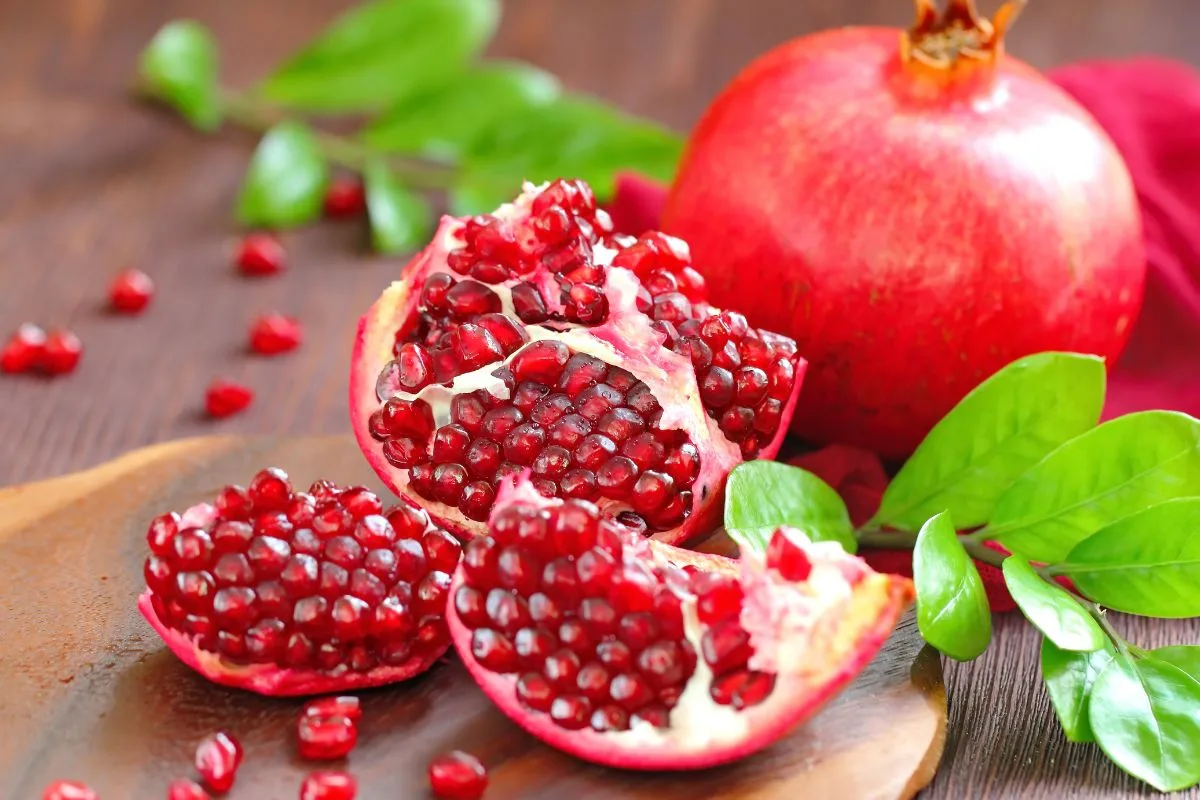Pomegranate is more than just a vibrant and delicious fruit; it’s a powerhouse of nutrition packed with a myriad of health benefits. Originating from the fertile regions of the Mediterranean and parts of Asia, this ancient superfood has been celebrated for its extraordinary health properties for centuries. With a unique flavor profile and a wealth of essential nutrients, pomegranate is increasingly recognized as an excellent addition to a balanced diet. In this article, we will delve deeper into the nutritional information of pomegranate, explore its numerous health benefits, and discuss important aspects to consider when incorporating this remarkable fruit into your diet. Whether you are looking to improve your overall wellbeing or simply want to enjoy a delicious and nutritious snack, understanding the full potential of pomegranate is essential.
Nutritional Information of Pomegranate
When evaluating the nutritional composition of pomegranate, it’s important to consider the values per 100 grams of the fruit. Here is a detailed breakdown of its nutritional content:
- Protein: 1.6 g
- Total Fat: 0.1 g
- Dietary Fiber: 5.1 g
- Carbohydrates: 14.5 g
- Energy: 271.96 joules
- Iron: 1.8 mg
- Calcium: 10 mg
- Sodium: 0.9 mg
- Potassium: 133 mg
- Zinc: 0.8 mg
As shown in this table, pomegranate is low in total fat and a great source of dietary fiber, which plays a crucial role in maintaining digestive health. The significant carbohydrate content mainly comes from natural sugars, providing a quick energy source without the calories associated with processed snacks. Additionally, the presence of iron, calcium, potassium, and zinc underscores pomegranate’s status as a nutrient-rich food that can contribute to various aspects of health.
Health Benefits of Pomegranate
Incorporating pomegranate into your diet can yield a plethora of health benefits, making it an essential fruit for anyone committed to better nutrition. Several studies have highlighted the positive impacts of pomegranate on various health conditions:
- Antioxidant Properties: Pomegranates are renowned for their high antioxidant content, specifically punicalagins and anthocyanins. These compounds combat oxidative stress, reducing the risk of chronic diseases such as heart disease and cancer.
- Heart Health: Regular consumption of pomegranate juice has been linked to improved cholesterol levels and lower blood pressure. This makes it an excellent natural remedy for promoting heart health by enhancing blood vessel function.
- Anti-Inflammatory Effects: The anti-inflammatory properties of pomegranate can help reduce the risk of inflammatory conditions, such as arthritis. The fruit’s phytochemicals assist in modulating inflammation in the body.
- Digestive Health: With 5.1 g of dietary fiber per 100 grams, pomegranate supports digestive health by promoting regular bowel movements and fostering a healthy gut microbiome.
- Cancer Prevention: Some studies have shown that pomegranate extract can inhibit the growth of certain cancer cells, particularly in breast and prostate cancer. The fruit’s bioactive compounds exhibit potential chemopreventive effects.
The combination of these health benefits makes pomegranate a versatile and powerful ally in maintaining overall wellbeing. Whether consumed fresh, juiced, or as a supplement, adding pomegranate to your diet can substantially enhance nutritional intake while promoting long-term health.
Things to Keep in Mind for Consumption
While pomegranate is undoubtedly beneficial, it is essential to approach its consumption thoughtfully to maximize its advantages. Here are a few considerations:
- Portion Control: Despite its health benefits, moderation is key. Consuming large quantities of pomegranate, especially in juice form, can lead to excessive calorie intake. Stick to appropriate serving sizes to maintain a balanced diet.
- Interactions with Medications: Pomegranate juice may interact with certain medications, including blood thinners and antihypertensives. If you are on medication, consult a healthcare professional before making pomegranate a regular part of your diet.
- Choose Whole Fruits: Whenever possible, opt for whole pomegranates rather than juice or processed products. Whole fruits provide more fiber and fewer added sugars, making them the superior choice for overall health.
- Allergy Awareness: Although rare, some individuals may have allergic reactions to pomegranates. If you have a known fruit allergy, exercise caution when trying this fruit for the first time.
- Seasonality and Freshness: Opt for seasonal pomegranates when possible, as they tend to be fresher and more flavorful. Look for fruits that are heavy for their size and have a bright, unblemished skin.
By being aware of these considerations, you can enjoy the myriad benefits of pomegranate while ensuring that your consumption aligns with your overall health goals.
In conclusion, pomegranate is a remarkable fruit that is not only appealing to the taste buds but is also exceptionally nutritious. Its impressive nutritional profile, enriched with vital vitamins and minerals, coupled with potent antioxidant and anti-inflammatory properties, establishes it as a superfood worthy of inclusion in your diet. With a mindful approach to portion control and awareness of its potential interactions, individuals can harness the many health benefits that pomegranate has to offer. So, whether you’re sprinkling its seeds on a salad, juicing it for a refreshing drink, or simply enjoying it as a snack, embracing pomegranate in your nutritional journey is a decision your body will appreciate.
Axis Diet is dedicated to empowering individuals with knowledge and practical advice for healthier living. Our articles, grounded in research and expert insights, aim to simplify complex nutritional concepts, offering a comprehensive understanding of various aspects of diet and wellness. While these articles are informative and a great starting point for anyone looking to improve their health, they are for informational purposes only. For personalized, professional guidance tailored to your unique health needs, we encourage you to consult with Axis Diet’s registered dietitians. Reach out to us for expert personalized guidance on your nutritional journey.






[…] Indian Context: Fruits like guava, papaya, and pomegranate, as well as vegetables like spinach, okra, and brinjal, are excellent choices. Use these in […]